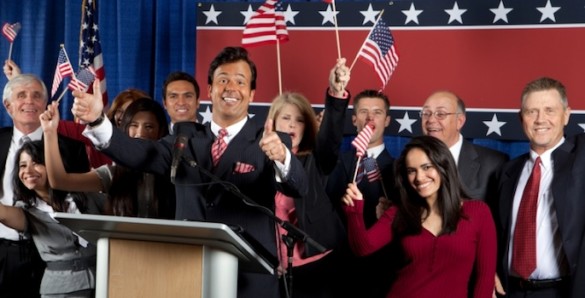
Although the patronage system of political appointees shows no signs of weakening, anything that can be done to corral it would help the federal government operate more efficiently, say two Vanderbilt University researchers.
“Current presidents have between 3,000 and 4,000 positions at their disposal to fill throughout the federal government, which suggests that citizens should be concerned about how patronage appointments affect government performance,” said David Lewis, the William R. Kenan Jr. Professor of Political Science and co-director of the Center for the Study of Democratic Institutions at Vanderbilt University.
“If the victors get the spoils, what do the citizens get?”
Using the Program Assessment Rating Tool (PART), a measuring system devised during the George W. Bush administration by the Office of Management and Budget, Lewis and Vanderbilt alumnus and former Center for the Study of Democratic Institutions affiliate Nick Gallo found that citizens get “lower quality management of federal government programs because of patronage.”
“[rquote]Career managers perform better than appointees, and those appointees from the campaign perform the worst,” Lewis said.[/rquote]
On the positive side, presidents try to avoid placing patronage appointments in positions where a lot of damage can be done, such as managing key federal programs, Lewis and Gallo note.
“Presidents try to place patronage appointees in positions where they are qualified to perform their jobs, or at the very least, where they can cause relatively little harm,” Lewis said.
Many are appointed to ambassadorships, he said. “Many of those are arguably unqualified for those offices and sometimes they perform poorly, but they generally don’t materially harm America’s interests, broadly defined.”

“Of course, presidents are not always successful at placing patronage appointees in positions where they will have little influence,” Lewis said, “and the consequences can be dramatic as illustrated by the cases of FEMA during Hurricane Katrina or Iraq reconstruction.”
Short of doing away with patronage appointments, which seems impractical, there are ways to reduce the harmful effects of the system, Lewis concludes.
“The United States does have significantly more political appointees than other developed countries, so there is definitely an argument to be made for scaling back those numbers,” Lewis said. “Failing that, being careful to place appointees and careerists on the same team in the right mix so each can leverage their skills working together can actually be a good thing for government performance.”
The paper was published in Journal of Public Administration Research and Theory. The full study can be accessed at the Center for the Study of Democratic Institutions website.